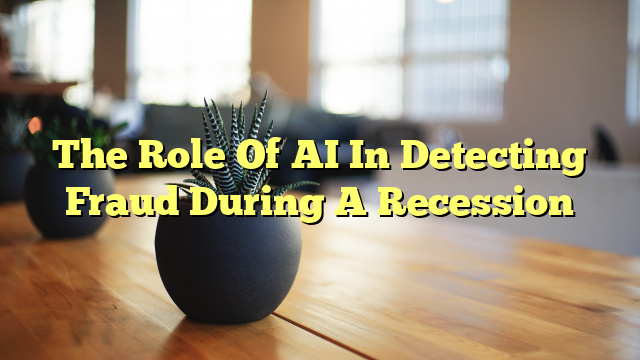Table of Contents
The Role of Artificial Intelligence in Detecting Fraud
Artificial Intelligence (AI) plays a crucial role in detecting fraud during a recession. With the increase in financial crimes and fraudulent activities during economic downturns, AI algorithms can analyze vast amounts of data to identify patterns and anomalies that indicate fraudulent behavior.
AI-powered fraud detection systems can process large volumes of data in real-time and flag suspicious transactions or activities. These systems use machine learning algorithms to continuously learn from new data and improve their ability to detect fraud.
By leveraging AI, organizations can significantly enhance their fraud detection capabilities and minimize financial losses during a recession.
How AI Can Help in a Recession
During a recession, financial institutions and businesses face increased risks of fraud and financial crimes. AI can help mitigate these risks in several ways:
- Real-time Monitoring: AI-powered systems can monitor transactions and activities in real-time, allowing for immediate detection and response to fraudulent behavior.
- Pattern Recognition: AI algorithms can identify patterns and anomalies in data that may indicate fraudulent activities, even in complex and large datasets.
- Behavioral Analysis: AI can analyze customer behavior and detect deviations from normal patterns, flagging suspicious activities for further investigation.
- Automation: AI can automate the process of fraud detection, reducing the need for manual intervention and improving efficiency.
Overall, AI can provide organizations with a proactive and effective approach to fraud detection, helping them safeguard their financial assets during a recession.
AI Algorithms Used for Fraud Detection
Various AI algorithms are used for fraud detection, including:
- Supervised Machine Learning: This approach involves training AI models on labeled data, where fraudulent and non-fraudulent transactions are labeled. The models learn to classify new transactions based on the patterns observed in the training data.
- Unsupervised Machine Learning: Unsupervised algorithms analyze data without pre-existing labels. They identify anomalies and patterns that deviate from the norm, potentially indicating fraudulent behavior.
- Deep Learning: Deep learning algorithms, such as neural networks, can learn complex patterns and relationships in data, making them effective for detecting sophisticated fraud schemes.
Organizations may use a combination of these algorithms to achieve the highest level of accuracy and efficiency in fraud detection.
Can AI Prevent a Recession?
While AI can play a significant role in detecting fraud during a recession, it cannot prevent a recession from occurring. Economic recessions are complex phenomena influenced by various factors, including global economic conditions, market forces, and government policies.
However, AI can contribute to mitigating the impact of a recession by improving fraud detection and enabling organizations to respond swiftly to fraudulent activities. By minimizing financial losses and maintaining trust in financial systems, AI can help stabilize the economy during challenging times.


AI can play an important role in detecting fraud during a recession.